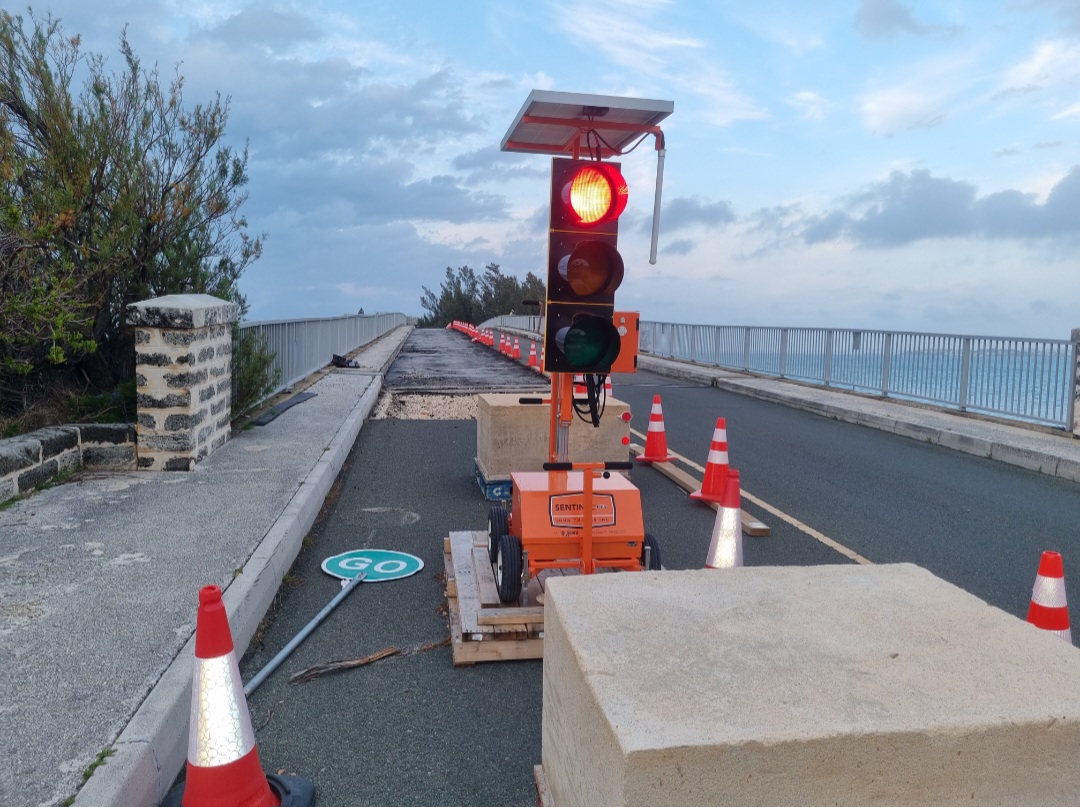Staff at the roads paving section of the Ministry of Works and Engineering disgruntled over what they allege is a lack of consultation leading to further financial burdens for Mr. and Ms. Bermuda.
Their angst they say is caused by what they describe as the inefficient management of the department and the lack of a proper plan for the repaving of the island’s roads. What’s more, they contend the taxpayer is being made to foot the bill for this inefficiency.
According to staff, there is a pay-loader which was recently purchased at a cost of close to a quarter of a million dollars at the Tynes Bay Waste Treatment Facility but which is now out of service, with no assurance of when the necessary repairs will be effected as there was no warranty attached included in the purchase agreement for this piece of machinery.
However, a spokesperson for the Ministry of Works and Engineering while confirming the pay-loader is out of commission assures that it was purchased under normal conditions and as such, it remains under warranty. As to why the equipment has not yet been repaired then, the spokesperson indicated, “the pay-loader is being evaluated for repair.
There is concern among W&E staff over the apparent delay in the work being done on the swing bridge which connects St. Georges to St. David’s. Of particular concern, they say, is the fact that there is staging which remains in place at the site, the cost for which escalates the longer the staging is there.
While the spokesperson would not comment on the amount being paid for the staging, they did indicate: “The planned assessment of the St. George’s Swing Bridge work has been completed. It was carried out by local engineers iEPC Ltd. along with representatives of the Ramboll Group in the UK.
“Ministry Structural engineers are reviewing their report, and recommendations will be forthcoming shortly to Ministry headquarters.”
The workers also complain of cost over runs due to continued delays in the repairs to Watford Bridge, a figure they estimate to be upwards of a million dollars. It appears they were not far off.
Responding to this claim when asked about it by TNN, the ministry spokesperson told us: “Watford Bridge repair was delayed due to the discovery of poor waterproofing membranes beneath the sidewalks, necessitating new membrane application, access hatches, and sidewalk toppings and curbs, raising the cost from $794,946 to $1,039,270.03. The sidewalks were not included in the original RFP but were only discovered once work began. The decision was made to include that work so that the entire bridge could be repaired.”
“Work on Watford Bridge is estimated to be completed within the new budget in early July.”
This means the work will continue during the height of the tourist season. According to one worker: “That’s not a good look.”
The major issue, the workers argue is the seeming lack of a proper roads paving plan given all the excavation which is taking place on almost every major thoroughfare to accommodate a more secure electricity supply for residents as well as improvement in service delivery for other utilities.
The workers lament, the approach to repaving is ad-hoc at best, resulting in damage to residents’ vehicles requiring costly repairs. Not to mention they say, the fact that the patch up being done is less than adequate and of poor quality. This the workers maintain leads to pot holes recurring in recently patched areas whenever there is heavy rainfall.
A lack of quality aggregate the workers claim is also a major contributing to factor to this situation.
Asked about these purported issues the spokesperson indicated: “The Department of Works and Engineering has promoted Mr. Nathan Darrell as its new Highways Superintendent.”
“Mr. Darrell recently completed a course in aggregate and concrete use in Las Vegas, Nevada and has since implemented a new process for fixing potholes that involves milling (or grinding) a larger area of the old asphalt and replacing it.”
“Separately, there are challenges with the supply of aggregate, not just for road paving but across the construction industry, and we are exploring options to import aggregate. These challenges have not yet affected road paving, however there is the potential they could.”
“The Ministry regrets the inconvenience caused to the motoring public, However, these improvements are necessary as the Government remains committed to honour its public pledge to improve the Island’s ageing infrastructure.”
The workers are of the opinion what is required to achieve better outcomes is consultation with the crews responsible for the actual paving exercise as they are better aware of what is required given their role in the actual preparation of the road surface and subsequent laying of the asphalt.
Any content which is considered unsuitable, unlawful, or offensive, includes personal details, advertises or promotes products, services or websites, or repeats previous comments will be removed.
User comments posted on this website are solely the views and opinions of the comment writer and are not a representation of or reflection of the opinions of TNN or its staff.
TNN reserves the right to remove, edit or censor any comments.
TNN accepts no liability and will not be held accountable for the comments made by users.

